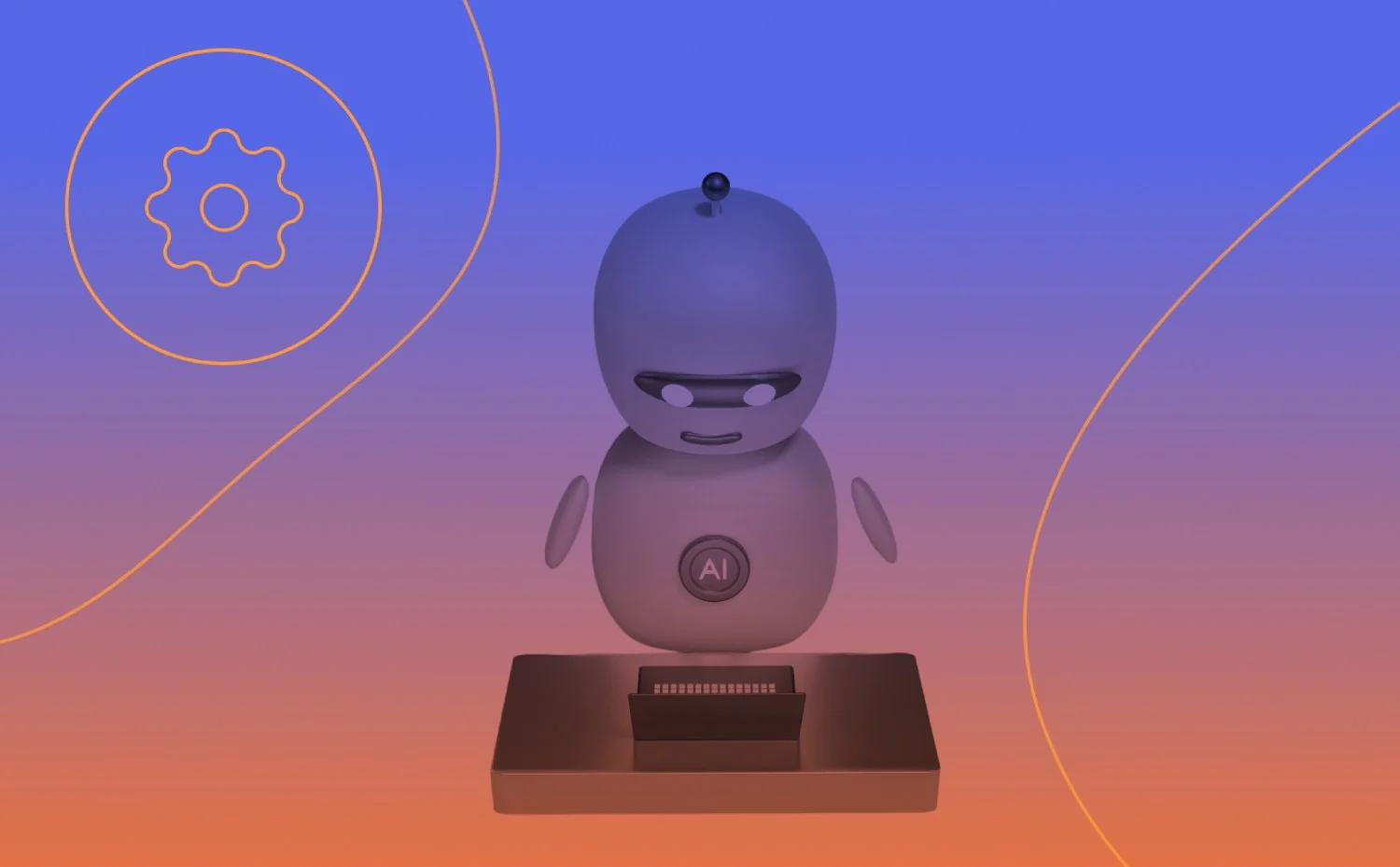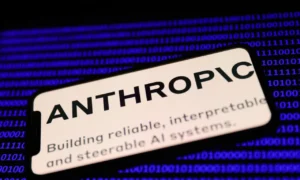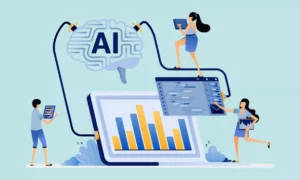Try searching “best free AI tools” in 2025, and you’ll find listicles bloated with brand mentions, tools you can’t access without a credit card, and flashy demos that quietly expire after a trial. For someone new, it feels like a bait-and-switch trap.
Here’s the thing: most of what’s marketed as “free” isn’t built with beginners in mind. Either you hit a wall after five prompts, or you’re tossed into an interface that assumes you understand embeddings, APIs, or YAML files. The result? Many get stuck or bounce within minutes. Some spend hours trying to make sense of tools that weren’t designed for them in the first place.
The good news is, real users, educators, and even a few Reddit veterans are tracking what actually works, tools that feel safe, usable, and genuinely beginner-friendly from the start. And they’re often missing from the big-name guides.
This isn’t another recycled list. It’s a ground-up audit, built on user stories, expert takes, and the kinds of data most roundups ignore.
If you’re just getting started, think of this as a launchpad. Not just what to try, but how to steer clear of the usual traps.

Image from AIHR
What Counts As ‘Beginner-Friendly’ in 2025?
Let’s get something straight: “beginner” doesn’t mean the same thing to everyone. For some, it means writing a blog post with AI. For others, it’s setting up a no-code automation to handle invoices.
The problem is, too many tools and so-called “guides” assume one type of user — technical, patient, and already halfway up the AI learning curve.
But real beginners don’t always speak API. They want clarity. Onboarding. Simplicity. And that’s where most lists fail.
Take this insight from the Retable Editorial Team, quoted directly:
“Some of these free AI tools may be more complex and require a higher level of technical expertise, while others may be designed to be more accessible and user-friendly for beginners. It’s important to assess each tool’s level of complexity and user-friendliness before diving in and to seek out tutorials or other resources to learn how to use them effectively.” — Retable blog, Jan 17, 2025
That tension between promise and usability keeps surfacing, especially in community spaces like Reddit.
He’s not alone. Many 2025 threads show a mix of optimism and paralysis. Beginners want power, but they need pathways.
The tools that actually work for them don’t just offer free access. They offer a frictionless starting point. No signup walls. No trial traps. No cloud dependencies that hide privacy risks. Just a clean, usable interface and a clear way to get started.
We’ll break those tools down in the next section. But first, let’s define the standard. In 2025, beginner-friendly means you can use it without an engineering background, and see results within 10 minutes of clicking “try now.”
What Tools Are Beginners Actually Using (and Why These Ones Stick)
Let’s skip the SEO bait. This isn’t a popularity contest built on search traffic or affiliate deals. These are the tools real beginners actually use, talk about, and return to. They show up in Reddit threads, user reviews, expert lists, and adoption reports — and not one of them asks for a credit card on day one.
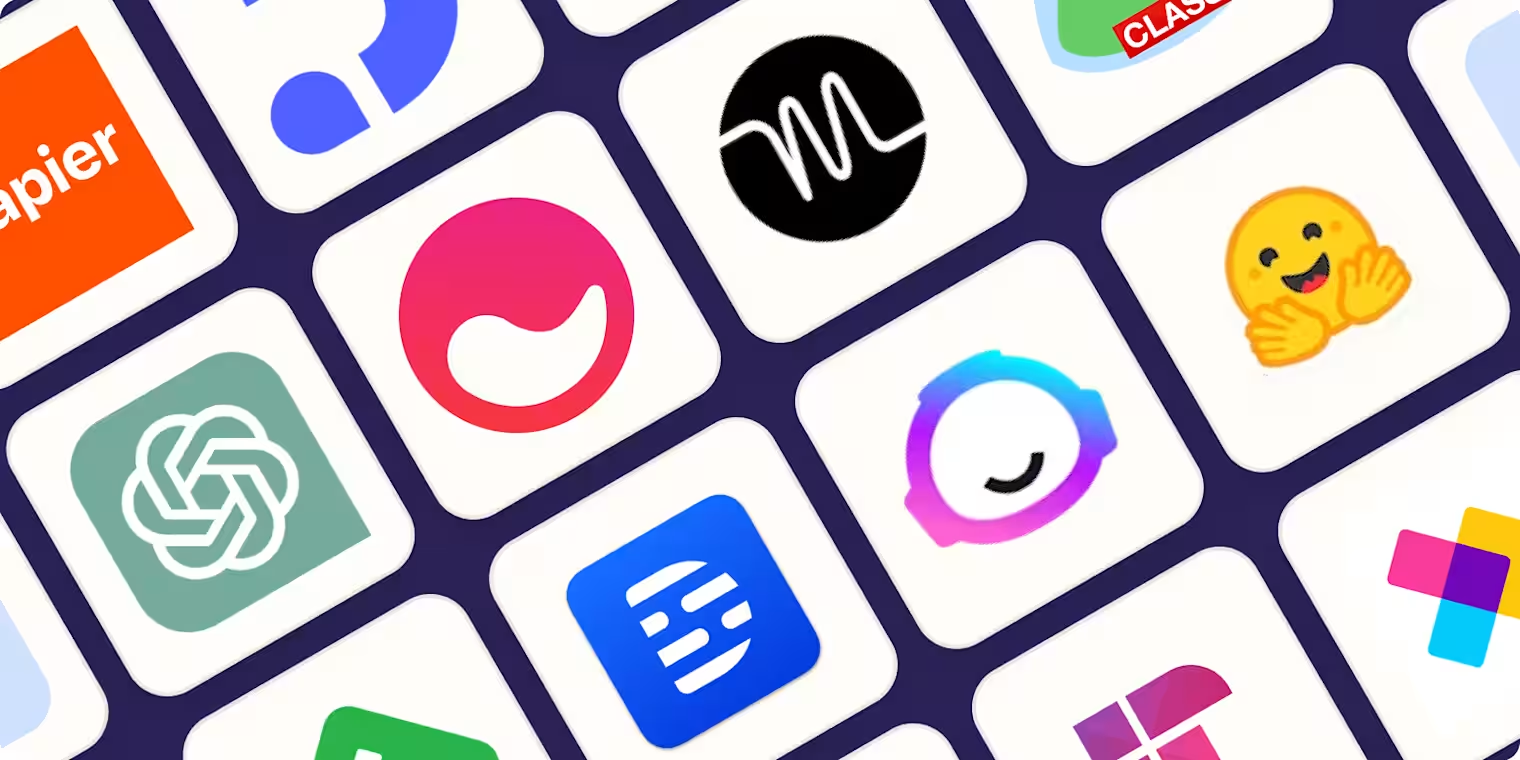
Image from Zapier
Beginner-Approved Free AI Tools (2025)
| Tool | Best For | Free Tier Highlights | Source |
|---|---|---|---|
| ChatGPT | Writing, research, Q&A | Free GPT-3.5 tier with strong general reasoning | Synthesia, Reddit r/singularity |
| NotebookLM | AI-powered research help | Fully free during early testing phase | Google Cloud (June 13, 2025) |
| Fathom | Meeting transcription | Free transcription for video/audio calls | Synthesia Top 40 List |
| Canva AI | Graphic design, image gen | Free AI art generator via Canva’s design suite | Piktochart, Synthesia |
| Suno | AI audio generation | Free audio/music tools for creators | Synthesia, Indie Hackers |
| Gumloop | Workflow automation (no-code) | Free tier for building micro-apps | Reddit r/nocode |
| Claude 3.7 | Writing, Q&A, creative work | Available in free form on some platforms | Reddit user Faktafabriken |
| Gemini | Large input files, visuals | Free via Google AI Studio for devs/students/researchers | Reddit user DepartmentDapper9823 |
| Copy.ai | Copywriting | Free tier for content creators | Neil Patel, Synthesia |
| Zyro AI | Website text generation | Fast, intuitive UI, no AI experience needed | Ullah MSP3C (LinkedIn) |
These tools don’t just appear on expert lists. They’re regularly cited by users as practical, easy to start with, and genuinely helpful. In a thread on Reddit r/singularity, user DepartmentDapper9823 shared:
“Gemini offers an extensive context window and a significant output capacity, enabling me to upload large PDF documents and manipulate the content in countless ways… ChatGPT now excels at generating visuals and responds to my requests with impressive precision.”
Another user, Faktafabriken, added:
“Claude 3.7 exhibits minimal hallucinations when responding to my inquiries, which is truly impressive. The quality of its answers is exceptionally high.”
These aren’t cherry-picked testimonials. They reflect a growing wave of beginner feedback that values three things: stability, simplicity, and results.
Let’s take it further. In the next section, we’ll look at why some tools still fail — and the blind spots that most “best of” lists refuse to address.
What Most Guides Get Wrong About ‘Free AI Tools’
Even some of the highest-ranking articles — including those from major universities and AI providers — overlook what actually matters to first-time users. Let’s break down five blind spots that mainstream coverage continues to miss.
1. Free That Actually Means Free
Many guides still include tools with “free plans” that expire after a week or demand a credit card. But beginners aren’t looking to trial a billing system. They want something they can use now — without limits, without surprises. Only a few sources, like Retable, emphasize tools that are truly free to start.
2. Good Onboarding Is Better Than Fancy Features
Caltech’s workshop guide offered solid demos. What it lacked was post-demo support. Tools like Canva and Copy.ai stand out not because of flashy features, but because they guide users clearly from the first click. If a beginner can’t get past the welcome screen, the rest doesn’t matter.
3. Privacy Isn’t a Checkbox, It’s a Dealbreaker
Plenty of tools log prompts or lean heavily on cloud storage — a big concern for anyone handling sensitive content. TechRadar puts it plainly:
“Free AI tools may compromise privacy; users should be cautious and informed about data handling practices.” — TechRadar AI tools review, June 2025
Still, most articles either skip the issue or gloss over it with generic language about encryption. That’s not enough.
4. Academic Tools Don’t Always Fit Everyday Users
Sourcely and Academia Insider built solid lists for researchers. But not everyone is running experiments or writing papers. Freelancers, students, and small business owners need tools built for general tasks — not academic use. The disconnect between those needs is often ignored.
5. Beginners Don’t Need Every Tool, Just the Right One
Massive tool lists look impressive, but they rarely help someone figure out what’s actually useful. Reddit threads, Indie Hacker guides, and Synthesia’s 2025 breakdowns offer something better — real workflows. Whether it’s writing, automation, or image creation, users stick with tools that match their goals. That’s what most roundup content forgets to consider.
What Beginners Actually Say — Stories, Struggles, and First Wins
Forget speculation. Let’s dig into what users are actually saying in the wild. Across Reddit, Indie Hackers, and Hacker News, beginners in 2025 are telling a very different story than what most corporate roundups suggest.
On Reddit’s r/learnmachinelearning, newcomers regularly discuss which tools helped them get a grip on core AI concepts. One thread quoted a user saying:
“As a free course, I think the structure and video content is good, but I think you should avoid paying for the cert since I don’t think the additional value is there. Maybe I should revise my ‘avoid’ statement to reflect that, or remove it since ‘avoid’ sounds a little too strong.”
What stands out? Beginners want structure and clarity — but they’re wary of overpromises. Value up front matters more than certificates at the end.
And in r/nocode, user XRayGeorge added:
“I aim to cultivate foundational AI skills to create AI solutions tailored for small and medium-sized enterprises… pinpointing the most beneficial ones to focus on can be quite daunting.”
On Indie Hackers, one user summed up a broader issue:
“I realized people miss the basics. Everyone speaks about ChatGPT, but nobody speaks about what AI is — in simple, familiar terms.”
Meanwhile, contributors on Hacker News discussed how tools like ChatGPT are already reshaping junior-level coding roles:
“Now, with tools like ChatGPT, much of that [grunt work] can be automated.”
These quotes aren’t edge cases. They reflect a broader pattern: people just starting out want clarity, relevance, and real-world guidance — not cluttered dashboards or AI jargon. The best tools help them build confidence, not just complete tasks.
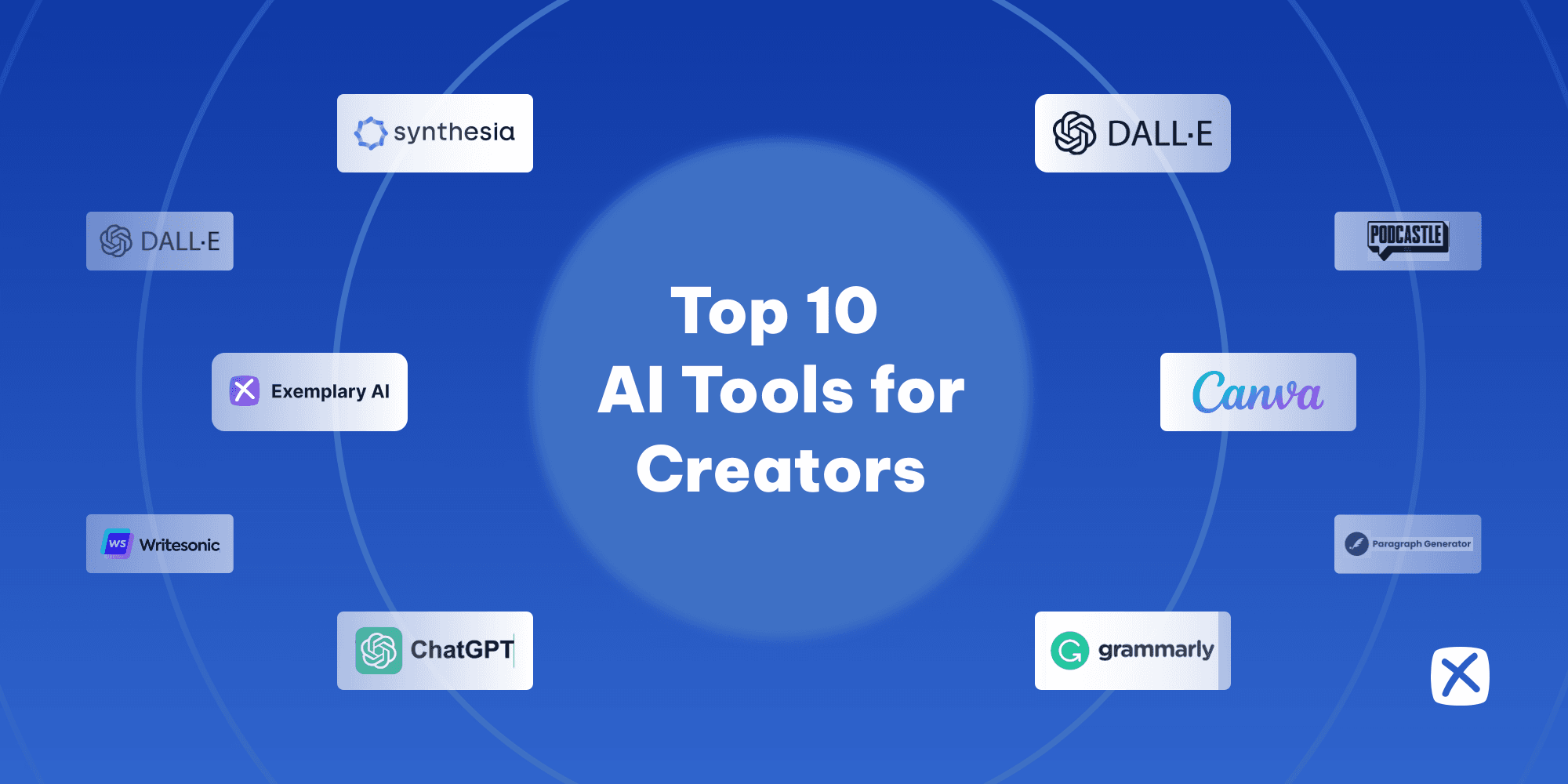
Image from Exemplary AI
Tool Categories That Actually Make Sense to Beginners
Some guides dump 100+ tools in a single post, hoping something sticks. But beginners don’t think in brand names — they think in problems. “How do I write better emails?” “Can I make visuals for my course?” “What’s the easiest way to automate a boring task?” That’s the lens that matters.
This is how everyday users, not just marketers, actually get started with AI. Each category below is drawn directly from Reddit use cases, expert commentary, and Synthesia’s 2025 data. These are the kinds of AI tools beginners can actually use without formal training or technical deep-dives.
Writing & Content Creation
Best For: Emails, blogs, product descriptions, LinkedIn posts, social content
- ChatGPT (Free Tier): Popular for all-purpose content drafting, answering questions, and refining tone.
- Copy.ai: Praised by Neil Patel and widely used by solo creators for writing marketing copy fast.
- Zyro AI: Loved by non-tech users. As Ullah MSP3C puts it:
“Even small business owners with zero AI experience can create polished web copy with this.” — LinkedIn post, Jan 2025
Learning, Research & Summarization
Best For: Students, researchers, bloggers, and lifelong learners
- NotebookLM: Lets users upload documents, then ask questions directly from their own source material.
- Perplexity.ai and Claude 3.7: Frequently cited by Redditors for reliable summarization and low hallucination risk.
From Faktafabriken:
“Claude 3.7 exhibits minimal hallucinations when responding to my inquiries… exceptionally high quality.”
Visual Design & AI Art
Best For: Social media graphics, ads, blog visuals, YouTube thumbnails
- Canva AI: Combines image generation, design templates, and drag-and-drop editing — all in one place.
- DALL·E (via ChatGPT): Generates custom images based on natural language prompts, now integrated into ChatGPT.
Reddit users often mention these tools together because they feel natural to use — even for someone who’s never touched design software.
Audio & Voice Generation
Best For: Podcasters, video editors, educators, indie creators
- Suno AI: For generating royalty-free music or soundtracks using prompts
- Fathom: Automatic meeting transcription — especially useful for student note-taking and team collaboration
According to Synthesia’s Top 40 AI list, both tools consistently show up in creator workflows.
No-Code Automation & App Building
Best For: Small businesses, solopreneurs, indie hackers
- Gumloop: Build micro-apps to automate workflows without writing code
- Activepieces and n8n: Mentioned frequently in r/nocode and Indie Hackers for triggering automation chains
As XRayGeorge notes:
“Pinpointing the most beneficial tools is daunting — but no-code platforms helped me build faster than I imagined.”
These categories reflect how beginners naturally approach AI — they think in problems first, tools second. Whether it’s automating busywork or writing better LinkedIn posts, The tools here aren’t just free. They meet users where they are — straightforward, practical, and built for people figuring things out as they go.
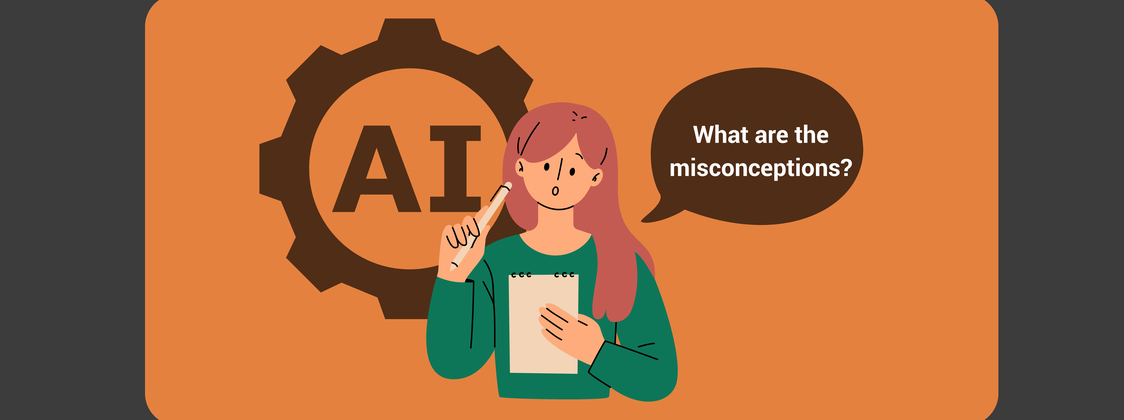
Image from scarlatti.co.nz
The Myths That Keep Beginners Stuck
Even with endless ‘top AI tools’ articles online, beginners still find it hard to get started. Why? Because the biggest myths around free AI tools never seem to die. You’ll hear them in roundup posts, see them in YouTube tutorials, and even catch them repeated by educators. But people actually using these tools — in Reddit threads, LinkedIn posts, and Indie Hacker case studies — know better.
Here are the misconceptions that keep showing up — and the field-tested perspectives that help clear the fog.
Myth 1: If It’s Free, It’s Easy to Use
This is arguably the most damaging assumption. Just because a tool doesn’t cost money doesn’t mean it was designed for entry-level users. In fact, many tools with free plans (like developer sandboxes or API playgrounds) require technical knowledge from the start.
From the Retable Editorial Team:
“The myth that all free AI tools are instantly usable by beginners is false — there’s often a learning curve that isn’t immediately obvious.”
Myth 2: Free Tools Are Private by Default
Privacy isn’t always guaranteed — especially with tools that rely on prompt logging, cloud storage, or third-party integrations. This misconception can lead educators, researchers, or journalists to unknowingly compromise sensitive content.
TechRadar warns:
“Free AI tools may compromise privacy; users should be cautious and informed about data handling practices.” — TechRadar AI tools review, June 2025
Myth 3: More Features = Better Tool
Packed dashboards overwhelm new users fast. What’s marketed as “powerful” can quickly become paralyzing.
Caltech’s 2025 AI Workshop Summary noted this friction:
“Tools with simpler interfaces and clear onboarding tend to have better retention among new users, even if they have fewer features overall.”
Myth 4: One Tool Can Do It All
A lot of lists promise the “ultimate AI assistant,” but trying to do everything with one tool quickly leads to burnout. Modular workflows, where each tool does one job well, are more sustainable.
As seen in Reddit threads across r/nocode and r/learnmachinelearning, beginners thrive when they use:
- ChatGPT for ideation
- Canva AI for visuals
- Gumloop for automation
Trying to force one tool to “do everything” often leads to frustration, not productivity.
Myth 5: Certifications Make Tools Beginner-Friendly
Free AI courses and tools bundled with certification offers may appear beginner-focused, but that’s often more marketing than substance. Learners in r/learnmachinelearning have voiced skepticism:
“I think the structure and video content is good, but I think you should avoid paying for the cert since I don’t think the additional value is there.”
What actually matters is clarity and ease of use, not a certificate at the end.
These myths don’t just cause confusion. They chip away at trust. That’s why every AI recommendation should come with clear context — who it’s for, how it treats your data, and what it takes to get started.
How Far Can Free AI Actually Take You in 2025?
There’s real value in free AI tools, but also real limits. For beginners, knowing how far free AI tools can realistically take them isn’t just a technical concern , it’s emotional. Will this help me solve a real problem? Or will I hit a paywall just when things start making sense?
Here’s what the numbers — and actual users — reveal, minus the hype.
Time-Saving? Yes, But Only If the Tool Holds Up
According to KDnuggets, the top free AI tools can save users 10+ hours per week by automating common tasks like research, writing drafts, content editing, and email generation.
That stat reflects a real shift in how beginners use AI day-to-day , not just for novelty, but for time leverage.
Most People Are Already Using Free AI — Are You?
A Stanford/Elfsight study cited in the research shows that 40% of U.S. adults have used generative AI tools. Most didn’t pay for them. That alone signals a cultural normalization of free-tier access , especially in education, side-hustles, and small teams.
Where Free Tools Start to Break Down
Take Google Cloud’s AI Studio, for example. As of June 2025, the free tier includes:
- 60 free requests per minute for Gemini Pro
- Up to 50 free image generations via Imagen 2
- 120 requests/min for Gemini Flash
These are generous , but not infinite. Power users, developers, and creators will likely outgrow them quickly. Beginners? They’ll be fine , until they scale.
A Solo Business Owner’s Take on Free AI
Ullah MSP3C, reflecting on tools like Zyro AI, says:
“Even small business owners with zero AI experience can create polished web copy with this.”
That’s the upside — some tools deliver real results, especially for small teams or solo work.
So, How Far Can You Really Go Without Paying?
Free AI tools in 2025 offer enough to write blog posts, generate basic visuals, build workflows, transcribe meetings, and summarize research. That’s a lot.
But once you need scale or serious customization, you’ll hit the ceiling fast. The trick is knowing when to pay, not if.
What You Get for Free, Compared Side by Side
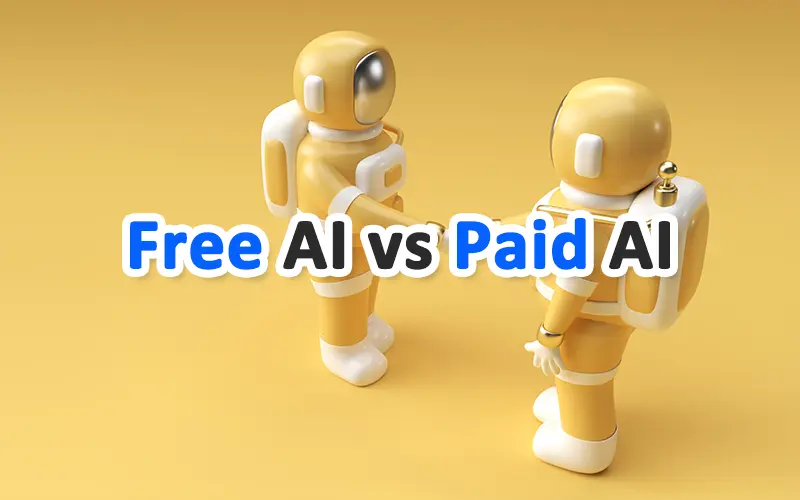
Image from vivoldi.com
If you’ve followed the beginner feedback, expert notes, and usage data, one thing is obvious: not all ‘free’ is built the same. Smart decisions start with clarity — especially around what each free tier actually includes.
Here’s a side-by-side look at how today’s most-used beginner tools stack up, including the limits that often get buried in the fine print. Whether you’re writing, designing, automating, or just exploring, these caps shape what you can realistically do.
| Tool | Free Tier Highlights | Daily or Monthly Cap | Ideal For | Source |
|---|---|---|---|---|
| ChatGPT (GPT-3.5) | Unlimited chats with access to web + DALL·E (on some platforms) | Varies by platform (OpenAI, Poe, etc.) | Writing, Q&A, ideation | Synthesia, Reddit |
| NotebookLM | Upload your own docs, ask research questions | Early access only, no hard caps disclosed | Summarizing long content, studying | Google Cloud, June 13, 2025 |
| Gemini Pro | Supports large input prompts + image understanding | 60 requests/min, free in AI Studio | Image tasks, longform queries | Google AI Studio, June 2025 |
| Gemini Flash | Fast response time, optimized for quick queries | 120 requests/min | Quick tasks, mobile-friendly usage | Google AI Studio, June 2025 |
| Imagen 2 (via Gemini) | Image generation through prompt input | 50 generations/month | Visual creation | Google AI Studio, June 2025 |
| Canva AI | AI image/text tools integrated with drag-and-drop editor | Free with Canva’s core plan | Graphics, thumbnails, IG posts | Piktochart, Synthesia |
| Copy.ai | Limited word credits/month depending on usage | Varies (free plan resets monthly) | Social copy, blogs | Neil Patel, Synthesia |
| Zyro AI | Instant web copy generator with zero setup | No clear usage limit mentioned | Non-tech users, landing pages | Ullah MSP3C (LinkedIn) |
| Fathom | Meeting transcriptions, summaries | Free for personal video/audio calls | Students, remote teams | Synthesia Top 40 |
| Suno | Create short music/audio tracks | Free tier access for indie creators | Podcasts, music snippets | Indie Hackers, Synthesia |
This list isn’t exhaustive, but it covers the tools that come up again and again in beginner circles, expert lists, and user reviews. Not sure where to begin? Look at the ‘Ideal For’ column, find your use case, and go from there.
Why Free Doesn’t Always Mean Frictionless
Even with the best tool lists and user guides, beginners still run into roadblocks. The tools might be free, but the learning curve, onboarding gaps, and usage surprises aren’t always friendly.
Here’s what actual beginners are struggling with in 2025 — straight from their own feedback and expert takes.
Information Overload From Day One
Reddit threads are packed with new users drowning in choice. Between Synthesia’s Top 40 list, YouTube reviews, and tech influencer posts, new users often don’t know where to begin.
Poor or No Onboarding
Even the most powerful free tools often assume too much. Gemini, Claude, and Perplexity might be capable, but that doesn’t mean a new user will understand how to prompt them effectively. Many lack walkthroughs, templates, or plain-language guides.
Fear of Hallucination
New users frequently worry about whether the AI is “making stuff up.” That worry causes hesitation and second-guessing, especially with tools like Claude 3.7.
Value Anxiety Around Paid Upgrades
Some tools aggressively nudge users toward upgrades. Too often, free plans feel like bait instead of a real place to start. Beginners feel pressured to pay before they’ve fully explored the free tier.
Accessibility and Device Constraints
Not all free AI tools are mobile-optimized or usable with limited internet. Users on older devices or slower connections find some tools heavy, laggy, or completely inaccessible.
These issues don’t make free AI worthless, but they do explain why so many beginners drop off before seeing results.
What’s Next for Free AI Tools?
Free AI isn’t disappearing. It’s evolving. The AI landscape in 2025 is shaped by evolving pricing models, platform shifts, and wider public adoption. For beginners, that means new opportunities and new limits.
Here’s what’s changing and why it matters if you’re just getting started.
Free AI Is Getting Smarter and Broader
Tools like NotebookLM and Gemini Pro are expanding what beginners can do without a paid subscription. As of June 2025, both are improving accessibility with larger context windows, image understanding, and richer document analysis. All of it available in the free tier.
Google Cloud’s documentation confirms:
“Gemini Pro supports up to 60 requests per minute for developers, students, and researchers.” — Google Cloud
More Platforms Are Catering to Beginners
From Canva to Copy.ai, free AI tools are offering better onboarding and no-code workflows. Templates, walkthroughs, and cleaner dashboards are becoming common — making it easier for beginners to dive in.
Synthesia’s 2025 Top 40 list highlights these tools not for power, but for ease-of-use and reliability.
Communities Are Filling the Education Gap
Beginners are leaning more on Reddit, Discord, and forums like Indie Hackers for real-world guidance. These spaces offer real context and practical workarounds, things official docs often leave out.
That peer support is shaping how people adopt tools, avoid pitfalls, and move from experimentation to actual productivity.
Freemium Models Are Getting More Transparent
After criticism around aggressive upgrade nudges, many platforms are reworking how they present their pricing tiers. Tools like Gemini, Claude, and Copy.ai now publish clearer usage thresholds and limits.
That kind of clarity helps new users trust the tool and avoid signing up too early.
All of this marks a shift. It’s no longer just about access, but about better, smoother experiences. The real question is changing from “what can you try?” to “can you actually use it well?”
Common Questions Beginners Ask About Free AI Tools
Beginners usually don’t ask about token counts or model specs. They ask everyday stuff. What’s safe? What’s actually free? Can I use this for my business or schoolwork?
These are the most common beginner questions pulled from Reddit, autocomplete prompts, and real user threads in 2025 , answered straight from the source.
What’s the best free AI tool for content writing?
ChatGPT’s free GPT-3.5, Copy.ai, and Zyro AI consistently appear in user recommendations for writing blogs, emails, and website copy. For simplicity and tone matching, beginners gravitate toward these because they offer immediate results with little setup.
Do I need to enter my credit card to use these tools?
No. The tools featured in this article , like Gemini via AI Studio, Canva AI, NotebookLM, and others , offer genuinely free access without requiring a payment method at signup. Tools that demand upfront billing info were excluded.
Can I use free AI tools for school projects or work?
Yes, but always check the data handling and privacy terms. Tools like Fathom, NotebookLM, and Canva AI are often used in school, but if your project involves sensitive or proprietary content, refer to institutional policies before using a generative model.
Will these tools stay free forever?
Unlikely. Most platforms operate on a freemium model , free tiers exist to attract users, but premium tiers fund the ecosystem. As user bases grow, expect more limits added over time. That said, some tools , like Google’s NotebookLM , are currently in open-access test phases.
Which tool is best if I don’t know anything about AI?
Users with no technical background report the most success with Canva AI, Zyro AI, and Copy.ai. These tools provide onboarding, templates, and results that don’t require prompt engineering knowledge.
What happens if I hit the free tier limit?
Each tool sets its own limit , on tokens, prompts, image credits, or API usage. The moment you exceed it, the service will usually notify you and offer a paid tier. Always check usage dashboards if available.

Final Thoughts
If you’re starting your AI journey in 2025, you’re not lacking for tools. You’re drowning in them. Dozens of ‘top 10’ lists. Hundreds of opinions. But if you made it this far, you’ve seen what most guides skip , what works, what breaks, and what actually helps.
This isn’t about chasing the most powerful model or the flashiest demo. It’s about picking tools that respect your learning curve. Ones that offer clarity over jargon. Tools that don’t just open the door, but help you walk through it.
The best free AI tools? They’re not always sleek. They don’t all nail the interface. But they do one thing right: beginners finish things with them. They ship. They build. They learn.
That’s what counts.
Free is just the starting line. What matters is where you go from there.

